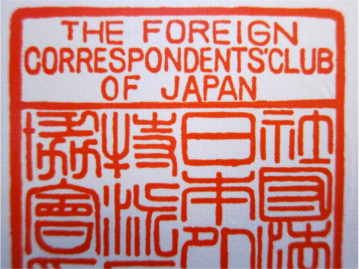 By William J. Holstein
By William J. Holstein
The Foreign Correspondents Club of Japan, where OPC members enjoy reciprocal relations, is facing a deep crisis and possibly a threat to its continued existence. President Khaldon Azhari, in an email to members, said a 2015 decision to move into a new building in Tokyo in October 2018 had placed the club in a difficult situation. If the FCCJ decides not to move in order to save money, the new landlord, Mitsubishi Estate, will impose steep penalties because that would violate a pre-lease agreement the club signed with it. If the club goes ahead and makes the move to the Fuji Building, it will face an annual rate increase of about $2 million, which the club cannot afford.
“Many members have asked whether we can avoid moving if it will cause us so much financial distress,” Azhari wrote. “The simple answer is that cancelling the pre-lease agreement that the current Board inherited would have resulted, as of Nov. 30, 2017, in substantial claims from Mitsubishi Estate for damages in respect of work already done by that date to prepare the 5th and 6th floors of the Fuji Building for use by the FCCJ.” He estimated that those penalties would cost the club about $2.6 million. “Even if we could have negotiated this amount down by one half, it would still have resulted in the immediate insolvency of the Club,” Azhari said.
Azhari called on members for help in figuring out how to generate more revenue. “We are carefully watching our expenses but there is only so much that we can do to save money – and most certainly not enough to cover the increase in rental cost that the pre-lease agreement authorized by the General Manager and signed by then then Board of Directors in 2015 commits us to,” he said.
The FCCJ, conveniently located in the Yurakacho Denki Building, has been devastated in recent years by the decisions of major Western news organizations to shift correspondents from Tokyo to Hong Kong or mainland China because China was considered a bigger story. As a result, tables at the club reserved for Western correspondents, which used to be packed with scribes imbibing their favorite beverages, are often empty while tables used by business members of the club are filled.
